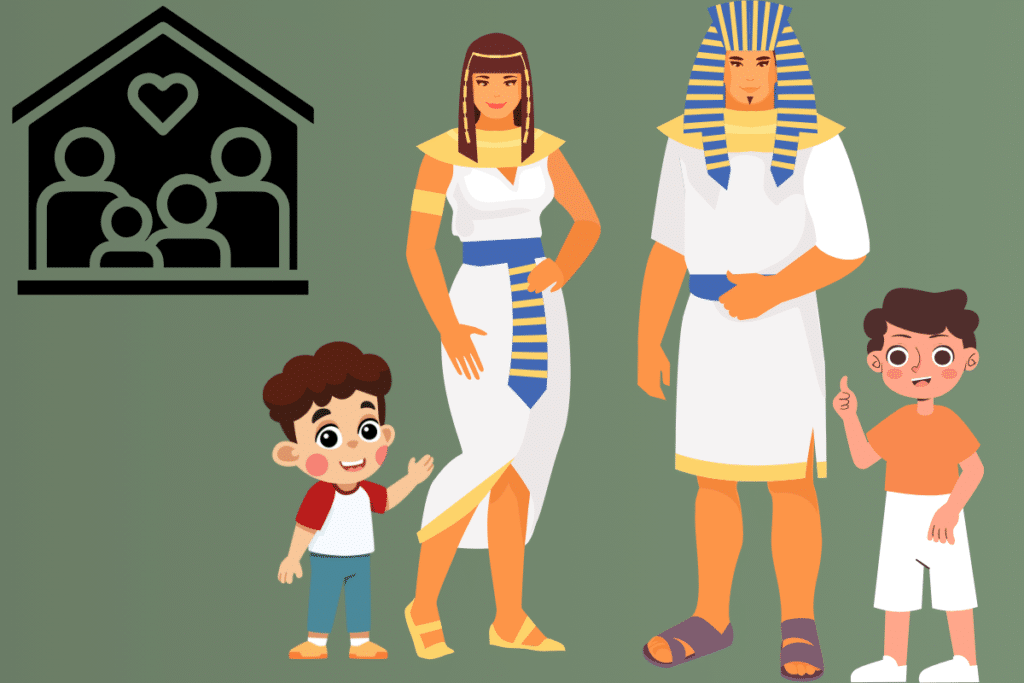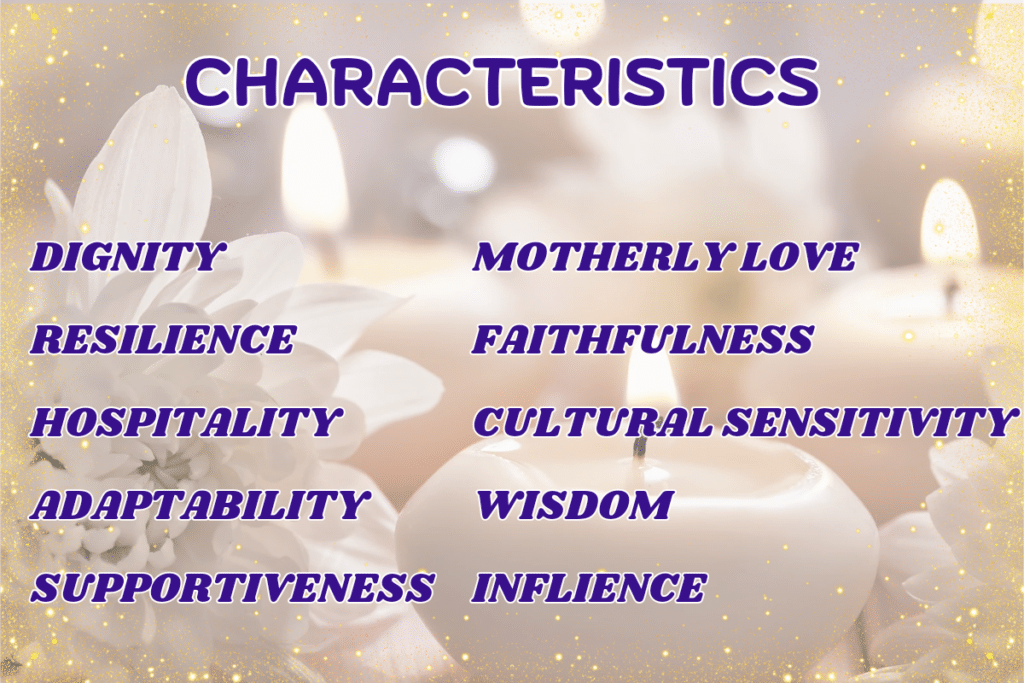ADMIRED ASENATH IN THE BIBLE
The name “Asenath” in the Bible holds significance and is derived from Hebrew origins. In Hebrew, “Asenath” (עָשְׁנַת) is believed to mean “belonging to (the goddess) Neith” or “she belongs to her father.”

Asenath in the Bible, wife of Joseph, played a crucial role in the lineage of Israel. Despite being a lesser-known figure, her marriage to Joseph led to the birth of two significant sons, Manasseh and Ephraim, who became heads of Israelite tribes. Asenath’s story highlights themes of cultural integration, family dynamics, and the blending of traditions.
Through her union with Joseph, she exemplifies acceptance of God’s plan, demonstrating how what may seem like a disaster can turn into an advantage. Asenath’s narrative underscores the importance of faith, resilience, and the providence of God in shaping destinies.
Historical and Cultural Context
Asenath’s story provides valuable insights into the cultural integration between ancient Egypt and Israel during Joseph’s time. As an Egyptian woman who married Joseph, Asenath represents the blending of two distinct civilizations. Egypt was a highly advanced society with a complex religious system, while Israel followed the monotheistic faith of Abraham.
Asenath’s marriage to Joseph, a Hebrew, demonstrates the potential for cultural exchange and mutual understanding in a multicultural environment. Her story underscores the importance of embracing diversity and finding common ground, even in the face of religious and social differences. Asenath’s narrative highlights the possibility of peaceful coexistence and the enrichment that can come from cultural integration.
Asenath’s Lineage and Background
Asenath in the Bible, the daughter of Potiphera, a priest of On (also known as Heliopolis), was likely born into a prominent and influential family deeply rooted in Egyptian religious and social life. Her father’s position as a priest of the sun god Ra in Heliopolis, a major city in ancient Egypt, suggests that Asenath belonged to a respected and powerful family.
This background would have provided her with a strong foundation in Egyptian culture and traditions, which she would have brought to her marriage with Joseph, a Hebrew. Her family’s influence and her own upbringing in a priestly household would have shaped her worldview and values, making her a significant figure in the biblical narrative.
Marriage to Joseph
Asenath’s marriage to Joseph, arranged by Pharaoh, symbolizes the acceptance and integration of Joseph into Egyptian society. This union, following Joseph’s rise to power as the vizier, cements his status and represents a strategic alliance between the Hebrew and Egyptian cultures. Pharaoh’s arrangement of the marriage signifies that Joseph is now fully accepted at the Egyptian court, making him “one of us.”

This integration is further emphasized by Joseph’s new name, Zaphenath-Paneah, and his marriage to Asenath in the Bible, a high-born Egyptian woman from a priestly family. The marriage of Joseph and Asenath highlights the blending of traditions and the cultural exchange between the two societies.
Role in Joseph’s Life
Asenath in the Bible, Joseph’s wife, plays a crucial supportive role in his administration of Egypt. Although the Bible does not provide detailed information about her daily activities, it is reasonable to assume that she contributed to maintaining the household and supporting Joseph in his duties.
Her presence in his life highlights the significance of family support in achieving responsibilities and goals. Asenath’s role underscores the importance of a strong family foundation in helping individuals navigate their roles and responsibilities effectively.
Motherhood and Legacy
Asenath’s legacy is intertwined with the destiny of the Israelite tribes through her sons, Manasseh and Ephraim. These two sons, born to Asenath and Joseph in Egypt, are adopted by Jacob (Israel) and elevated to the status of tribal patriarchs, each becoming the head of a tribe.

Manasseh and Ephraim’s blessings and inheritance in the Promised Land are a testament to Asenath’s role in the continuation of the Israelite lineage. Although a minor figure in the biblical narrative, Asenath’s importance is magnified through her sons, who play significant roles in the history of Israel.
Themes of Integration and Unity
The marriage of Joseph and Asenath in the Bible symbolizes the integration of different cultures and the potential for unity amidst diversity. Their union reflects the possibility of harmony between the Hebrew and Egyptian traditions, highlighting the theme of inclusivity and the blending of cultural identities.
Asenath’s background as an Egyptian woman from a prominent priestly family represents the acceptance of Joseph into Egyptian society, while Joseph’s Hebrew faith and status as a Hebrew slave-turned-vizier signify the integration of Egyptian and Hebrew cultures. The story of Joseph and Asenath underscores the importance of embracing diversity and finding common ground, even in the face of religious and social differences.
Faith and Transformation
Asenath’s inclusion in the Hebrew narrative implies a transformation and acceptance, even if the Bible does not explicitly detail her religious beliefs or conversion to Joseph’s faith. Her marriage to Joseph, a Hebrew, likely involved a shift in her religious and cultural identity, symbolizing a broader acceptance and integration into the Hebrew community.
This transformation is reflected in the story of Joseph and Asenath, where she converts to Joseph’s faith and becomes a devoted follower of Yahweh. Her integration into the Hebrew community highlights the potential for unity and harmony among diverse peoples, demonstrating the power of faith and cultural exchange in overcoming challenges.
Comparative Analysis
Asenath in the Bible, like Ruth and Rahab, is a foreign woman who plays a crucial role in the history of Israel. Her marriage to Joseph and the birth of her sons, Manasseh and Ephraim, demonstrate the theme of inclusivity in the biblical narrative.
These women, despite their non-Israelite origins, are integrated into the Hebrew community and contribute significantly to the lineage of Israel. Their stories emphasize the importance of embracing diversity and the potential for individuals from different backgrounds to have a profound impact on the biblical narrative.
Lessons from Asenath in the Bible
The story of Asenath in the Bible offers several valuable lessons that can be applied to our lives today:
- Embracing Diversity: Asenath’s marriage to Joseph, a Hebrew, highlights the beauty and importance of embracing diversity. Despite their different cultural backgrounds, their union signifies the potential for harmony and unity among people from diverse origins.
- Cultural Integration: Asenath’s story underscores the significance of cultural integration and the blending of traditions. Her marriage to Joseph exemplifies how individuals from different cultural backgrounds can come together, respect each other’s customs, and build a shared life.
- Acceptance and Inclusion: Asenath’s inclusion in the Hebrew narrative reflects a broader theme of acceptance and inclusion. Despite being of Egyptian descent, she becomes an integral part of the story of Israel, demonstrating that God’s plan transcends cultural boundaries.
- Divine Providence: Asenath’s journey, from being an Egyptian priest’s daughter to becoming the wife of Joseph and the mother of two significant tribes of Israel, illustrates the concept of divine providence. Her life serves as a reminder that God works in mysterious ways, orchestrating events for the fulfillment of His purpose.
- Identity and Purpose: Asenath’s story teaches us about identity and purpose. Despite her Egyptian heritage, she finds her place within God’s plan and contributes to the fulfillment of His promises. Her life exemplifies how individuals can discover their true identity and purpose in God’s unfolding story.
- Family Unity and Support: Asenath’s role as a wife and mother highlights the importance of family unity and support. She stands by Joseph through trials and tribulations, and together, they raise their sons, Manasseh and Ephraim, with love and care. Their family serves as a model of strength and solidarity.
- Faithfulness and Loyalty: Asenath’s faithfulness to Joseph and her commitment to their family exemplify the virtues of loyalty and devotion. Despite cultural differences and challenges they may have faced, she remains steadfast in her support for her husband and children.
- Transformation and Growth: Asenath’s journey from her Egyptian upbringing to her integration into Hebrew society reflects a process of transformation and growth. Her story teaches us that change is possible and that individuals can evolve and adapt to new circumstances while remaining true to their core values.
- Hope and Redemption: The story of Asenath in the Bible is a testament to the power of hope and redemption. Despite her background and the challenges she may have faced, she finds love, acceptance, and fulfillment in her marriage to Joseph, illustrating how God can bring beauty out of brokenness.
- Legacy and Influence: Asenath’s legacy lives on through her descendants, Manasseh and Ephraim, who become patriarchs of two of the twelve tribes of Israel. Her story reminds us that our actions and choices can have a lasting impact on future generations, emphasizing the importance of living with purpose and integrity.
By reflecting on these lessons from the story of Asenath in the Bible, we can gain insights into themes of diversity, acceptance, faith, and the overarching plan of God in our own lives. Her example inspires us to embrace our identities, cultivate unity, and trust in God’s guiding hand through all circumstances.
Theological Implications
The story of Asenath in the Bible exemplifies God’s providence and the integration of diverse peoples into His plan. Her marriage to Joseph, a Hebrew, and her subsequent role as the mother of Manasseh and Ephraim, two prominent Israelite tribes, highlights the universal scope of God’s promises.
Asenath’s inclusion in the narrative underscores the importance of unity and reconciliation among different cultures and backgrounds. Her story demonstrates how God can use individuals from diverse backgrounds to fulfill His plans, emphasizing the value of inclusivity and the potential for harmony among diverse peoples.
Modern-Day Reflections
The story of Asenath in the Bible is particularly relevant in today’s multicultural and interconnected world. It teaches us to embrace cultural diversity and value cross-cultural relationships, like her marriage to Joseph. Asenath’s narrative encourages us to seek harmony and understanding in our interactions with others, regardless of cultural or religious differences.
Her story also highlights the importance of family unity and support, as seen in her role as Joseph’s wife and the mother of his sons, Manasseh and Ephraim. Asenath’s inclusion in the biblical narrative underscores the universal scope of God’s plan and the potential for individuals from diverse backgrounds to contribute to the greater good.
Characteristics of Asenath in the Bible

Asenath in the Bible, the wife of Joseph and the mother of Manasseh and Ephraim, exhibits several characteristics in the Bible that define her role and influence in the narrative:
- Dignity: Asenath in the Bible carries herself with dignity and grace, reflecting her upbringing as the daughter of Potiphera, a priest of On. Her demeanor and behavior convey a sense of poise and respectability.
- Resilience: Asenath in the Bible demonstrates resilience in adapting to her new life as the wife of Joseph in a foreign land. Despite the challenges of cultural differences and language barriers, she adjusts to her surroundings and embraces her role with strength and resilience.
- Hospitality: Asenath in the Bible welcomes Joseph into her home and extends hospitality to him, demonstrating kindness and generosity. Her willingness to embrace Joseph and make him feel at home reflects her compassionate and hospitable nature.
- Adaptability: Asenath in the Bible shows adaptability in integrating into Hebrew culture and society after her marriage to Joseph. She embraces her new identity and plays an active role in the life of her family, demonstrating flexibility and openness to change.
- Supportiveness: Asenath in the Bible supports Joseph in his role as a leader and provider for their family. She stands by him through trials and tribulations, offering encouragement and strength during difficult times.
- Motherly Love: Asenath’s love for her sons, Manasseh and Ephraim, is evident in her care and devotion to them. She nurtures and protects her children, ensuring their well-being and upbringing with maternal affection.
- Faithfulness: Asenath in the Bible remains faithful to Joseph and their family, honoring her marriage vows and commitment to her husband. Her loyalty and fidelity contribute to the stability and unity of their household.
- Cultural Sensitivity: Asenath in the Bible demonstrates sensitivity to cultural differences and respects the traditions of both her Egyptian heritage and Joseph’s Hebrew background. She navigates the complexities of their multicultural family with tact and understanding.
- Wisdom: While the Bible does not provide specific examples of Asenath’s wisdom, her upbringing as the daughter of a priest and her role as the wife of a prominent leader suggest a level of wisdom and discernment in her actions and decisions.
- Influence: Asenath’s presence in Joseph’s life and her role as the mother of his sons have a significant influence on the narrative. Her inclusion in the biblical account underscores her importance in shaping the destiny of the Israelite tribes through her descendants.
These characteristics collectively portray Asenath in the Bible as a dignified, resilient, supportive, and loving wife and mother who plays a vital role in the biblical narrative of Joseph and the formation of the tribes of Israel. Her character serves as a model of strength, grace, and faithfulness for readers to admire and emulate.
Conclusion
Asenath in the Bible, though a lesser-known biblical figure, plays a crucial role in the story of Joseph and the history of Israel. Her marriage to Joseph symbolizes the integration of Egyptian and Hebrew cultures, highlighting the potential for unity amidst diversity. As the mother of Manasseh and Ephraim, two prominent Israelite tribes, Asenath’s legacy is intertwined with the destiny of Israel.
Her story encourages us to embrace cultural differences, value cross-cultural relationships, and recognize the universal scope of God’s plan. Asenath’s narrative underscores the importance of family unity and support, as well as the transformative power of faith in overcoming challenges.
Reference
Unique FAQ’s
1. Who was Asenath in the Bible? Asenath was the Egyptian wife of Joseph, the son of Jacob. She was the daughter of Potiphera, a priest of On, and the mother of Joseph’s two sons, Manasseh and Ephraim.
2. What is significant about Asenath’s marriage to Joseph? Asenath’s marriage to Joseph symbolizes the integration of Hebrew and Egyptian cultures, highlighting themes of cultural unity and acceptance. It also solidified Joseph’s status and acceptance in Egyptian society.
3. How did Asenath influence Joseph’s life and legacy? As Joseph’s wife, Asenath supported him in his role as the vizier of Egypt. Through her sons, Manasseh and Ephraim, she contributed to the legacy and lineage of the tribes of Israel, making her an integral part of biblical history.
4. What lessons can we learn from Asenath’s story? Asenath’s story teaches us the value of embracing cultural diversity, the importance of family unity, and the positive impact of cross-cultural relationships. Her narrative encourages us to seek harmony and understanding across different cultural and religious backgrounds.
5. How is Asenath’s story relevant today? In today’s multicultural society, Asenath’s story is a reminder of the importance of integrating diverse cultures and fostering unity. It encourages us to value and respect differences, promoting inclusivity and cooperation in our communities.


1 thought on “44. ADMIRED ASENATH IN THE BIBLE”